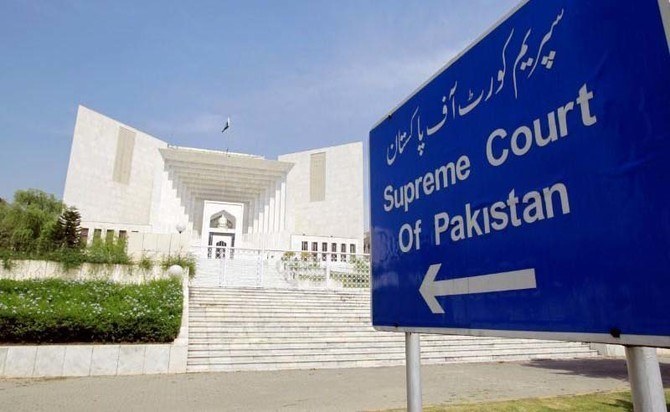Pakistan Supreme Court irked by Imran’s remarks about Nawaz wooing judiciary

ISLAMABAD: Taking exception to the statements made by Prime Minister Imran Khan about the judiciary at a public meeting a couple of days ago, Justice Jamal Khan Mandokhel on Monday wondered if the premier could restrain himself from “irresponsible” utterances.
“If the prime minister has no confidence in the highest forum, how can his members have confidence in him,” Justice Mandokhel observed.
The observation came during the hearing of a presidential reference seeking interpretation of Article 63-A of the Constitution. Justice Mazhar Alam Khan Miankhel regretted that the prime minister in his speech at a public gathering in Kamalia had alleged that attempts were being made to woo judges.
On Saturday, while addressing a large public meeting, PM Khan had said that if former prime minister Nawaz Sharif returned to the country, he would divide the judiciary, which, in fact, he had started doing and the signs are visible in the judiciary.
Justice Miankhel regretted that this statement was not only discussed widely on social media, but published in the mainstream media as well.
However, Chief Justice of Pakistan (CJP) Umar Ata Bandial, who headed the five-judge Supreme Court bench, observed that the court cannot bar political parties from making statements, adding such rhetoric influenced people outside, but not judges.
Attorney General of Pakistan (AGP) Khalid Jawed Khan argued that even if Article 62(1)(f) of the Constitution, which dealt with the disqualification of lawmakers for life, was kept aside the element of floor-crossing was destructive to parliamentary democracy, and looking at the country’s parliamentary history, the Constitution had always considered defection a devastating act.
Justice Mandokhel, however, questioned that when defection by members damages one party but proves beneficial to another, how could such an act be against parliament, adding that it seems the reference had been instituted to keep a check on lawmakers.
The CJP observed that Article 95, which dealt with the no-confidence motion against the prime minister, also lays down that when a certain number of members resign and the ruling party loses majority, the prime minister could be asked to take a vote of confidence again even if the opposition’s no-confidence motion fails.
Justice Munib Akhtar observed that the Constitution recognised the concept of minority since a country can have a prime minister who did not enjoy a majority from day one, but wondered if a president could ask a premier if he had the majority vote.
However, Justice Mandokhel cited the example of Balochistan where a government was functioning with the support of the opposition, observing that if other parties in parliament were willing to declare that defection under Article 63-A of the Constitution entailed disqualification then let parliament decide, especially when the AGP was presenting the point of view of a particular party.
The AGP argued that lawmakers had a fiduciary relationship with their parties, while parties in turn had a fiduciary relationship with voters, adding that elected members were bound by party discipline.




